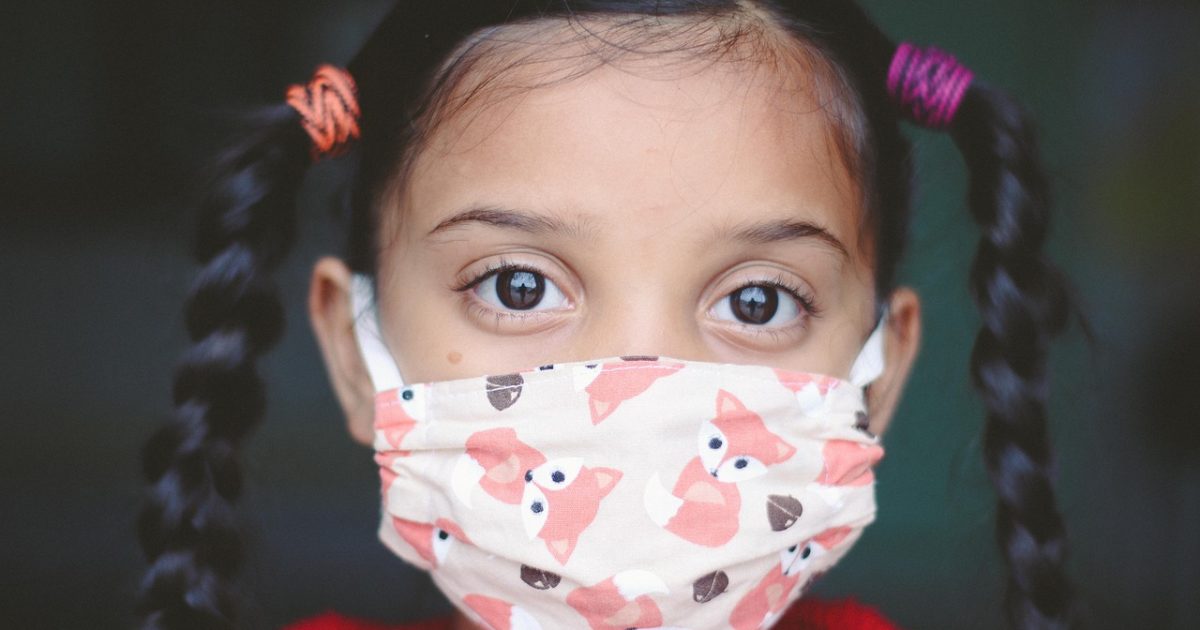Credit to my friend for pointing me to this study.
This report was released weeks ago but didn’t make a peep in American mainstream media.
The findings come from Rhode Island and provide an early indication of the catastrophic damage COVID-19 lockdowns have caused children’s development.
The first few years of a child’s life are critical to develop their cognitive, verbal, and motor skills.
Trending: Check Out My New Site, NoahReport!
Early research has pointed to the damaging effects lockdowns had on this development for children born post-January 2020.
The most disturbing finding thus far is the dramatic IQ decrease for children born at this time.
Babies born post Jan 2020 have a 20 point IQ deficit due to not seeing faces, low social interaction, surrounded by anxiety and the like.
Wtf are we doing to babies?https://t.co/3icF6SDYWv
— 6709E (@CdennehyChris) October 3, 2021
Doctor : kids born after Jan. 1st 2020, their IQ is 20 points down on kids born prior to the covid marxist hoax pic.twitter.com/1Gcm5IdlPY
— The Ogster (@Ognir2) October 9, 2021
This is why infant IQs points had a significant drop in 2020. Of course, one has to question the IQ of a mom that follows ridiculous advice like this from the CDC. https://t.co/Keb1qxzqe2
— Joe Zaza (@thejoezaza) September 30, 2021
It’s imperative babies see facial expressions and have social interactions.
Mask wearing and extreme anxiety in households is having a permanent negative impact on infants.
Sadly, it’s a problem public health officials don’t seem to take seriously.
Instead, they’re more focused on injecting toddlers with these toxic COVID-19 jabs.
A pediatric immunologist at Joe DiMaggio Children’s Hospital is speaking out about her decision to enroll her 13-month-old son in a COVID vaccine trial for children as young as 6 months old. @peterdoenchcbs4 shares her story. https://t.co/EnOVTKTIEB
— CBS News Miami (@CBSMiami) October 11, 2021
FDA Could Make Decision on COVID-19 Vaccine for 6-Month-Olds by End of Year#ProtectTheKids
https://t.co/e849PZDwRC— Pandemic-Aid Networks (@pandemicaid_net) July 21, 2021
These atrocious policies will severely impact future generations unless we take action to stop the abuse of our children.
If parents and other childcare providers don’t step up, this trend may worsen.
Although the study’s findings paint a saddening picture, I’ll note that it’s not peer-reviewed at this moment.
So, more research is needed on the subject.
The Guardian noted these findings:
The first few years of a child’s life are critical to their cognitive development. But with Covid-19 triggering the closure of businesses, nurseries, schools and playgrounds, life for infants changed considerably, with parents stressed and stretched as they tried to balance work and childcare.
With limited stimulation at home and less interaction with the world outside, pandemic-era children appear to have scored shockingly low on tests designed to assess cognitive development, said lead study author Sean Deoni, associate professor of paediatrics (research) at Brown University.
In the decade preceding the pandemic, the mean IQ score on standardised tests for children aged between three months and three years of age hovered around 100, but for children born during the pandemic that number tumbled to 78, according to the analysis, which is yet to be peer-reviewed.
“It’s not subtle by any stretch,” said Deoni. “You don’t typically see things like that, outside of major cognitive disorders.”
The study included 672 children from the state of Rhode Island. Of these, 188 were born after July 2020 and 308 were born prior to January 2019, while 176 were born between January 2019 and March 2020. The children included in the study were born full-term, had no developmental disabilities and were mostly white.
Those from lower socioeconomic backgrounds fared worse in the tests, the researchers found.
The biggest reason behind the falling scores is likely the lack of stimulation and interaction at home, said Deoni. “Parents are stressed and frazzled … that interaction the child would normally get has decreased substantially.”
Let me point out that the National Institutes of Health funded the study.
So, they’re well aware of the negative impact lockdowns and COVID-19 restrictions have on childhood development.
Yet, this is the nonsense they tell the public.
"I Know It Seems Weird": NIH Director Suggests Parents Wear Masks At Home Around Children https://t.co/dViR1pjEkr
— zerohedge (@zerohedge) August 4, 2021
NIH Director says masks on children under 12 ‘is a really smart thing to do’ https://t.co/eGBnVFAwxn
— Sara A. Carter (@SaraCarterDC) August 2, 2021
https://twitter.com/RolandBakerIII/status/1422911164699217925
While the resignation of NIH Director Dr. Francis Collins is a good sign, the public health agency still remains silent on this critical issue.
Here’s the study’s conclusion from Medrxiv:
The COVID-19 pandemic has fundamentally altered the child health landscape, with pregnant mothers
and individuals, and children living in a strikingly different economic, psychosocial, and educational
environment than what was present just 18 months ago. Against this environmental backdrop, unanswered questions remain regarding the impact of the work-from-home, shelter-in-place, and other public health policies that have limited social interaction and typical childhood experiences on early child
neurodevelopment. In this work, we provide early evidence suggestive of significant reductions in attained cognitive function and performance in children born over the past 18 months during the pandemic. While socioeconomic factors appear to mitigate against the negative consequences of the
pandemic, the primary factors underlying our observed trends remain unknown. Understanding these
factors are critical to helping ensure affected children rebound as the pandemic winds down and they
re-enter daycares and schools; as well as implementing additional public health and educational policies that address the most affected of children, particularity those in lower income families.



Join the conversation!
Please share your thoughts about this article below. We value your opinions, and would love to see you add to the discussion!